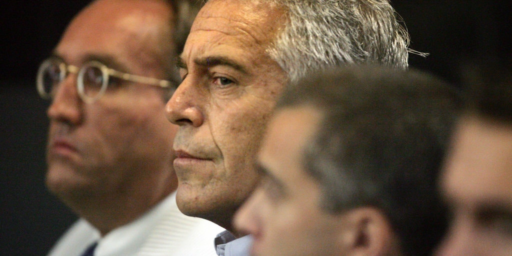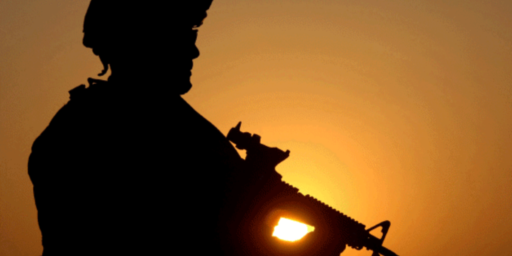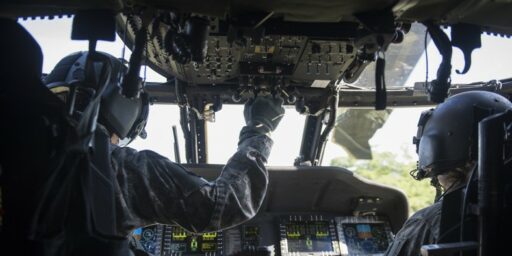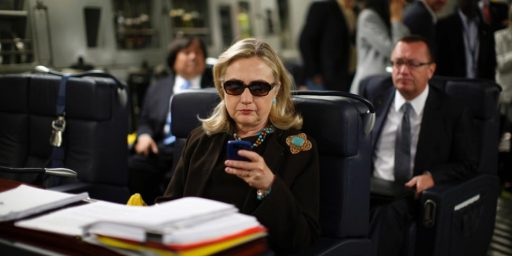9/11 Report Cites Many Warnings About Hijackings
9/11 Report Cites Many Warnings About Hijackings (NYT rss)
In the months before the Sept. 11 attacks, federal aviation officials reviewed dozens of intelligence reports that warned about Osama bin Laden and Al Qaeda, some of which specifically discussed airline hijackings and suicide operations, according to a previously undisclosed report from the 9/11 commission. But aviation officials were “lulled into a false sense of security,” and “intelligence that indicated a real and growing threat leading up to 9/11 did not stimulate significant increases in security procedures,” the commission report concluded.
The report discloses that the Federal Aviation Administration, despite being focused on risks of hijackings overseas, warned airports in the spring of 2001 that if “the intent of the hijacker is not to exchange hostages for prisoners, but to commit suicide in a spectacular explosion, a domestic hijacking would probably be preferable.” The report takes the F.A.A. to task for failing to pursue domestic security measures that could conceivably have altered the events of Sept. 11, 2001, like toughening airport screening procedures for weapons or expanding the use of on-flight air marshals. The report, completed last August, said officials appeared more concerned with reducing airline congestion, lessening delays, and easing airlines’ financial woes than deterring a terrorist attack.
[…]
Among other things, the report says that leaders of the F.A.A. received 52 intelligence reports from their security branch that mentioned Mr. bin Laden or Al Qaeda from April to Sept. 10, 2001. That represented half of all the intelligence summaries in that time. Five of the intelligence reports specifically mentioned Al Qaeda’s training or capability to conduct hijackings, the report said. Two mentioned suicide operations, although not connected to aviation, the report said.
A spokeswoman for the F.A.A., the agency that bears the brunt of the commission’s criticism, said Wednesday that the agency was well aware of the threat posed by terrorists before Sept. 11 and took substantive steps to counter it, including the expanded use of explosives detection units. “We had a lot of information about threats,” said the spokeswoman, Laura J. Brown. “But we didn’t have specific information about means or methods that would have enabled us to tailor any countermeasures.”
I had long presumed that the FAA gets thousands of threats a year and our aviation system would be crippled if they responded to all of them. If they only got 100-odd reports and 52 dealt with this threat, they should have been taken seriouly. Certainly, some of the simpler post-9/11 measures like intrusion-proof cockpit doors could have been implemented as a result of the threats. But even if they had taken the threats seriously in April 2001, these measures wouldn’t have been in place by September 11.
I’d be interested in getting more information on this aspect of the story:
The Bush administration has blocked the public release of the full, classified version of the report for more than five months, officials said, much to the frustration of former commission members who say it provides a critical understanding of the failures of the civil aviation system. The administration provided both the classified report and a declassified, 120-page version to the National Archives two weeks ago and, even with heavy redactions in some areas, the declassified version provides the firmest evidence to date about the warnings that aviation officials received concerning the threat of an attack on airliners and the failure to take steps to deter it.
If there’s a legitimate reason for the classified parts of the report to be classified, then obviously the administration shouldn’t release it to the public. Indeed, releasing classified information is a felony for those with security clearances. If the administration is protecting sources and methods, they should continue. If they’re misusing the classification system to hide information that’s merely politically embarrasing, that’s another matter entirely. Unfortunately, the nature of our classification system is such that we may never know.





Question, how many recommendations of the Gore report on airline safety were implemented? How many were killed because of airline lobbyists?
The simplest step, and the one which would have been most effective, would have been to inform the flying public of these threats.
On 9/11, the passengers of 1 of the four planes had threat information, and we all know what they did with it.
Our government and our media really failed us all by not informing us of the Al Qaeda threat. There were plenty of talking heads telling us everything about UBL once the attacks happened, but before that, the news was all about Gary Condit, and the government was all about $300 tax checks.
And dammit, why wasn’t the sailing public told of the threat of German U-boats before they started sinking unarmed ships during WW1?
The real culprits here are the airlines who placed their bottom line over the public interest.
Like most regulatory agencies, the revolving door between industry, Congress and the executive is endemic.
I would note that the front page of the NYT had another story of DOT malfeasance regarding railroad safety.
Mineta should certainly be fired for ineffective leadership.
Bush could claim that he is keeping his cabinet members accountable and simultaneously blame DOT’s transgressions on Clinton, since Mineta was a Clinton administration holdover (although from a diferent department).
Conversely, his incompetence may be grounds for promotion, given the patterns of cabinet level change in Bush II. Make Mineta Intelligence Czar!